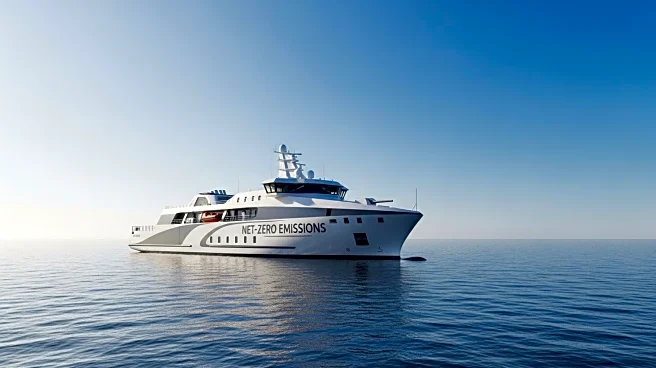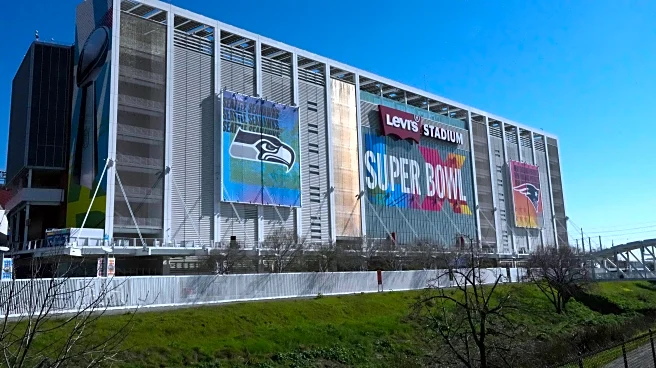What is the story about?
What's Happening?
Ahead of an important International Maritime Organization (IMO) meeting, several industry leaders have expressed concerns over the net-zero greenhouse gas framework approved at MEPC 83. Major shipowners, including Bahri and Frontline, have called for adjustments to the framework, citing unrealistic expectations. DNV has suggested a more pragmatic approach to LNG, while ABS has proposed a 'timeout' to reassess the framework's details. Despite these critiques, the Getting to Zero Coalition, comprising companies like Maersk and NYK, supports the framework as written, emphasizing the need for global regulatory guidance.
Why It's Important?
The IMO's net-zero framework is a pivotal step in decarbonizing the maritime industry, which is a significant contributor to global emissions. The critiques highlight the challenges in balancing ambitious climate goals with practical industry capabilities. The framework's success or failure could impact international shipping regulations and influence global climate policy. Delays or adjustments could increase costs for the industry and consumers, while a unified approach could accelerate decarbonization efforts. The outcome of the IMO meeting will be crucial in shaping the future of maritime emissions reduction.
What's Next?
The IMO meeting will address the concerns raised by industry leaders and determine whether the net-zero framework will be adjusted or implemented as planned. The decision will have implications for the maritime industry's transition to cleaner fuels and technologies. Stakeholders, including shipowners and environmental groups, will closely monitor the meeting's outcomes, which could influence future regulatory developments. The evolving policy environment in Europe and the U.S. may also affect the framework's implementation and the industry's response.















